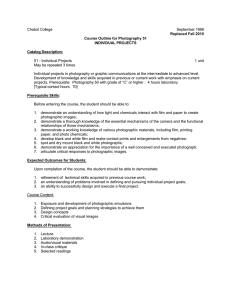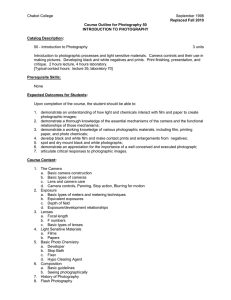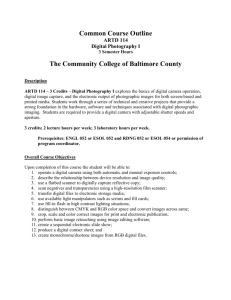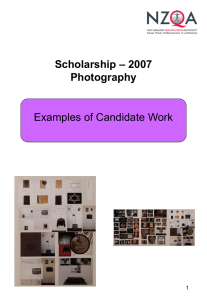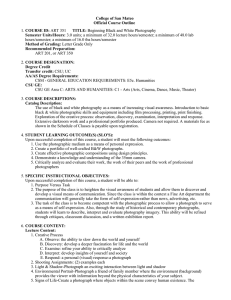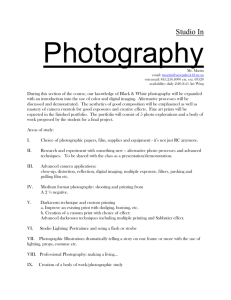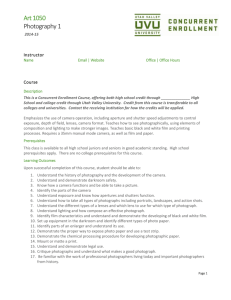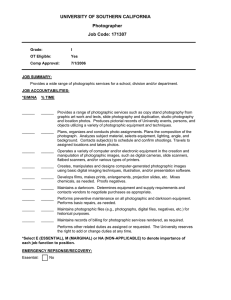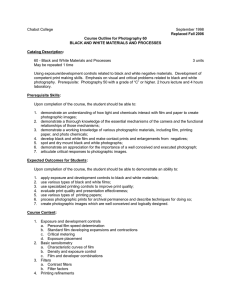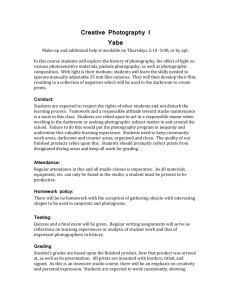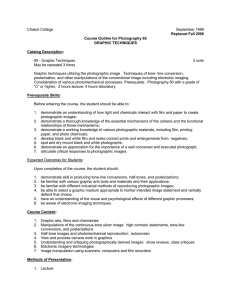PHOTOGRAPHY
advertisement
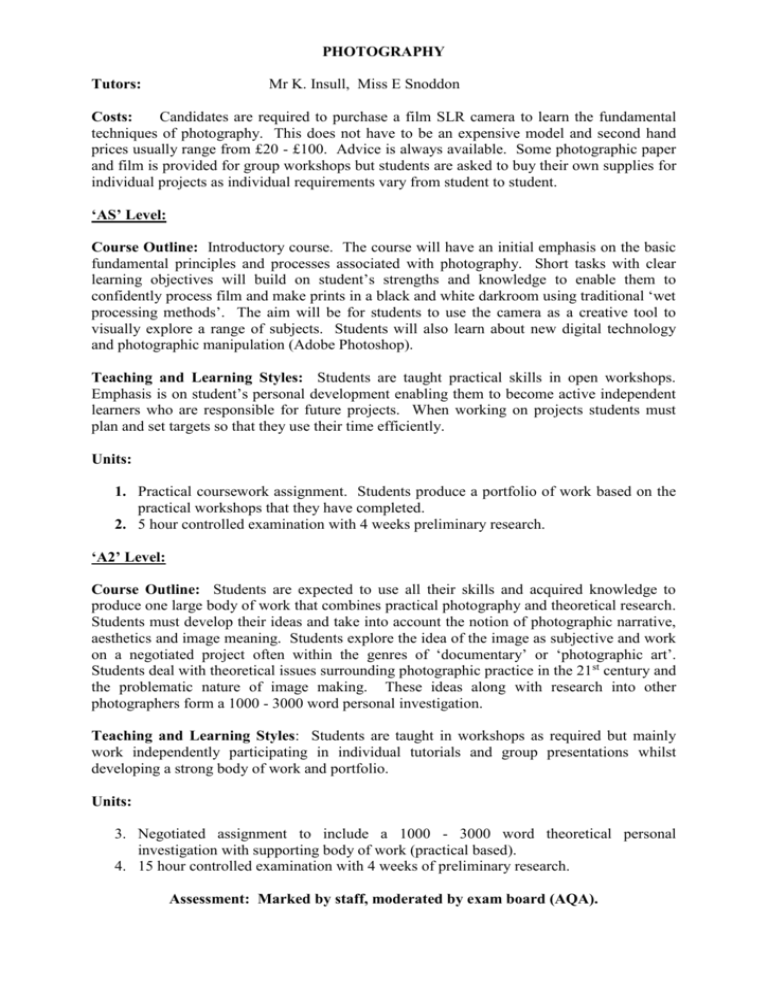
PHOTOGRAPHY Tutors: Mr K. Insull, Miss E Snoddon Costs: Candidates are required to purchase a film SLR camera to learn the fundamental techniques of photography. This does not have to be an expensive model and second hand prices usually range from £20 - £100. Advice is always available. Some photographic paper and film is provided for group workshops but students are asked to buy their own supplies for individual projects as individual requirements vary from student to student. ‘AS’ Level: Course Outline: Introductory course. The course will have an initial emphasis on the basic fundamental principles and processes associated with photography. Short tasks with clear learning objectives will build on student’s strengths and knowledge to enable them to confidently process film and make prints in a black and white darkroom using traditional ‘wet processing methods’. The aim will be for students to use the camera as a creative tool to visually explore a range of subjects. Students will also learn about new digital technology and photographic manipulation (Adobe Photoshop). Teaching and Learning Styles: Students are taught practical skills in open workshops. Emphasis is on student’s personal development enabling them to become active independent learners who are responsible for future projects. When working on projects students must plan and set targets so that they use their time efficiently. Units: 1. Practical coursework assignment. Students produce a portfolio of work based on the practical workshops that they have completed. 2. 5 hour controlled examination with 4 weeks preliminary research. ‘A2’ Level: Course Outline: Students are expected to use all their skills and acquired knowledge to produce one large body of work that combines practical photography and theoretical research. Students must develop their ideas and take into account the notion of photographic narrative, aesthetics and image meaning. Students explore the idea of the image as subjective and work on a negotiated project often within the genres of ‘documentary’ or ‘photographic art’. Students deal with theoretical issues surrounding photographic practice in the 21st century and the problematic nature of image making. These ideas along with research into other photographers form a 1000 - 3000 word personal investigation. Teaching and Learning Styles: Students are taught in workshops as required but mainly work independently participating in individual tutorials and group presentations whilst developing a strong body of work and portfolio. Units: 3. Negotiated assignment to include a 1000 - 3000 word theoretical personal investigation with supporting body of work (practical based). 4. 15 hour controlled examination with 4 weeks of preliminary research. Assessment: Marked by staff, moderated by exam board (AQA).
